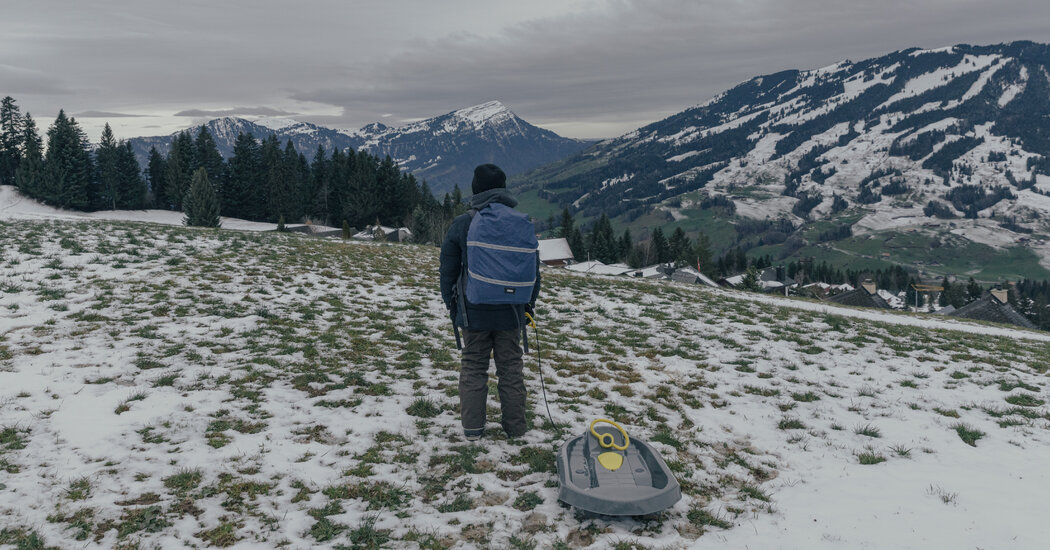Sports events have suffered, too. In Germany’s Alps, the Alpine skiing World Cup canceled some events because unseasonable winter rain had ruined prepared ski runs.
In the Bavarian village of Ruhpolding, the tourism director, Gregor Matjan, helped the town save its longtime tradition of a Biathlon World Cup, a race mixing cross-country skiing with rifle shooting.
This year, biathlon attendees slopped through mud to watch competitors whip along a track made of “farmed snow” — snow stored and packed from the previous winter and covered in reflective tarp. Because the covered piles require no electricity for cooling, he said, it is a relatively environmentally friendly option.
“This year was really exceptional, but we know that due to climate change, years like this will come more often,” he said. “So we have to find ways to deal with the economic impact.”
Some, like Thomas Schmid in Sattel, have opened businesses that embrace the coming change.
Mr. Schmid, a professional asset manager, sold off his father’s traditional Alpine cattle herd and bought goats, shocking some of his neighbors. But goats, he said, with their small hooves and lighter weight, cause less damage to Alpine vegetation more exposed without winter snow cover. And goats can resist the varying temperatures better than cows.
He and his sisters have now opened a restaurant and shop, Blüemlisberg, and are experimenting in making goat-milk chocolates and ice cream. They invite tourists’ children to come play with the goats, and hikers to end mountain treks at their restaurant with goat cheese fondue.
“I’m from here — it hurts me, too, to think we cannot ski here anymore,” Mr. Schmid said. “But people are starting to come to terms with this. The climate is changing. So we have to, too.”
Click Here to Read the Full Original Article at NYT > Travel…
